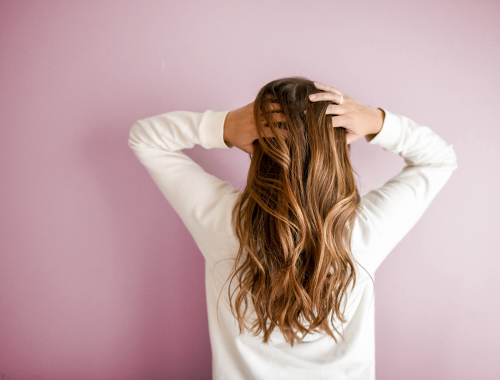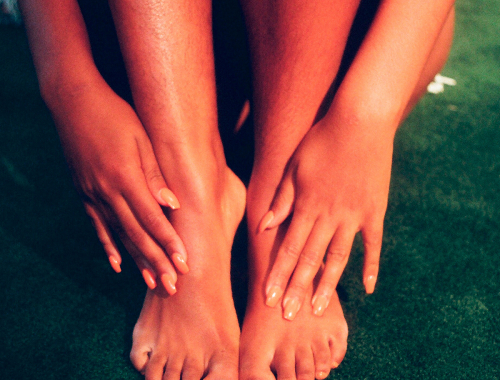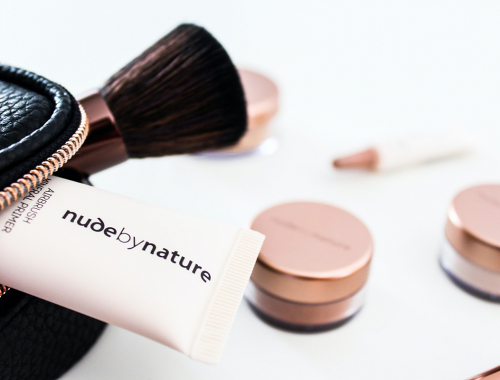Lips can be extremely difficult to keep moisturized, fresh, and supple. Unlike other areas of the skin, lip skin is extremely thin and does not have a natural protection barrier. Unlike other areas of skin, lips lack oil glands and therefore cannot produce any hydration on their own. What you are left is with thin, dry, and defenseless skin in a prominent area of your face. Do not be surprised that you have to constantly give extra care to this area. Easily chapped lips are not a sign that something is wrong with you—it’s just the way that lips are.
What To Do
Humidify
Many people find that moving to a humid climate magically cures their chapped lips. Humid air is basically a constant moisture bath for your skin. Running a few humidifiers throughout your house will make not only your lips but your overall skin feel much healthier. If you can only run a humidifier once a day, the best time is at night while you sleep.
[amazon template=image center 35&asin=B00NWA7JCW]
I like the Honeywell Ultrasonic Cool Mist Humidifier because it easily fits on a nightstand or desk, uses a cool mist (hot mists can further dry out your lips), and it’s ultrasonic so there are no filters to clean or replace. For best results, place the humidifier as near your face your possible. And remember to always use distilled water in a humidifier—tap water has mineral deposits that can build up and break the machine.
Exfoliate
Exfoliation is essential! You need to remove the top, dead layer of skin to correctly moisturize the healthy layer underneath. Expect to exfoliate your lips at least twice a day until they completely resolve.
Warm Washcloth
For mildly chapped lips, you may only need a washcloth dipped in warm water. Gently scrub away the flakes before applying a moisturizing balm.
Toothbrush
Some people find that the bristles of a toothbrush help deeply exfoliate severely chapped lips. Don’t use the same toothbrush you brush your teeth with—toothpaste residue is very drying.
Lip Scrubs
A product just for your lips? Isn’t that overkill? Not really, especially when you consider the major differences between lip skin and normal skin. Even facial scrubs touted for sensitive skin will be far too harsh for the lip area. If you aren’t getting the results you want with a warm washcloth, try a lip scrub. Unfortunately not just any lip scrub will do—most brands advertise gimmicky fragrances and contain irritating ingredients such as peppermint, castor, and citrus oil. There were only two I could find that did not contain any potential irritants.
Mizon Honey Black Sugar Scrub
This scrub is my personal favorite as it does not contain any potential irritants and uses natural black sugar mixed with moisturizers to create the perfect consistency for effective lip exfoliation.
[amazon template=image center 35&asin=B007JWJSBE]
The Lip Scrub by Sara Happ
A very simple brown sugar scrub with even fewer ingredients than Mizon’s. If you have extremely sensitive lips and a little extra money to burn, then give this product a whirl.
[amazon template=image center 45&asin=B002J993Q2]
Moisturize
DHC Lip Cream
Buttery smooth hydration that nourishes with squalane and olive oil in a convenient tube applicator. Note: contains lanolin and vitamin E.
[amazon template=image center 25&asin=B01FIPUJP2]
Lucas’ Papaw Ointment
While mainly an occlusive treatment, it does have a few moisturizing ingredients in addition to its petroleum jelly base.
[amazon template=image center 10&asin=B00GYVRW7S]
Kopari Coconut Lip Love
Coconut oil and shea butter form the core of this glossy lip treatment. Note: contains vitamin E.
[amazon template=image center 15&asin=B075THLCCN]
L’Occitane Ultra-Rich Shea Butter Lip Balm
A liquid balm based on shea butter that goes on rich and supple.
[amazon template=image center 45&asin=B00R5DSC2I]
Urban Myths
Hydration
Staying internally hydrated is a good idea for your overall health. There is a small chance that dehydration could cause chapped lips because your body cannot function properly without enough water. However the lips really do not produce their own moisture, so the jury is out on this one. You will find quicker improvement adding water to the air through a humidifier.
Fatty Acids
Fatty acids are great for skin health, but downing a bunch of fish oil is unlikely to improve chapped lips. Fatty acids improve the lipids secreted from your skin’s oil glands, but lips do not have oil glands! You may see fatty acids recommended for chapped lips out of confusion with a condition called angular cheilitis. Angular cheilitis affects normal skin around the corners of the mouth, not lip skin.
What To Avoid
Product Migration
Don’t let non-lip products touch your lips! Migration of irritating products can cause or worsen chapped lips. Toothpaste is a common problem as it is very drying and easily spreads to the lips. Acne products such as salicylic acid and benzoyl peroxide can drift towards the lips, and these harsh ingredients will definitely make your lips peel.
Menthol / Peppermint
Menthol is an alcohol derived from peppermint oil. Although menthol has a cooling zing, it evaporates quickly and pull moistures out with it. Peppermint oil has the same effect. Peppermint and menthol also rank high in allergy studies, and will cause inflammation if you happen to be allergic.
Camphor
Camphor is derived from turpentine oil and may cause lip peeling or allergic contact dermatitis. It is often combined with menthol and is best avoided if you have chapped lips.
Benzocaine
A topical anesthetic that may cause an allergic reaction such as increased redness and chapping.
Castor Oil
One of the more drying oils, castor oil has gained some popularity as a product for oil-congested skin. Obviously anything with drying properties should not be used on chapped lips, yet many lip products use castor oil because it is cheap and has a thick texture. It also contains 80%+ of ricinoleic acid which is an extremely common cause of contact dermatitis1.
Vitamin E
If you are allergic to Vitamin E you may develop allergic contact dermatitis by using a lip balm with Vitamin E. One study found that 33% of its participants had an allergic reaction to topical Vitamin E2. It may be listed on an ingredients list as: vitamin E oil, tocopherol, or tocopherol acetate. If you are not allergic, Vitamin E has great properties for the skin, so make sure that it really is the Vitamin E before throwing out your products.
Lanolin
Some readers have reported sensitivity to lanolin. Although less likely to cause a problem than other ingredients, it may be something to watch out for if you have severe sensitivities.
Citrus Oils
Many people have negative skin reactions to citrus oils such as orange, lemon, and tangerine. With so many other oils that can be used for hydrating purposes, it is safest to avoid all citrus oils in your lip balms. Despite their high allergenic potential, citrus oils are often used in skin products because of their fragrance.
Salicylic Acid
Acid should never be used on the thin and fragile lip skin. Salicylic acid is designed to dissolve oil which we desperately need on our lips for hydration!
Carmex
Carmex is one of the worst offenders as it contains multiple inflammatory ingredients: camphor, menthol, phenol, and salicylic acid.
[amazon template=image center 35&asin=B00GXF32SS]
Chapstick Classic
It contains camphor and lemon oil, both of which are likely to irritate and inflame your lips.
[amazon template=image center 35&asin=B015ZRXVX0]
O’Keefe’s Cooling Lip Repair Balm
Although it only has one offending ingredient (peppermint oil), I personally found this to be one of the worst products for my chapped lips.
[amazon template=image center 35&asin=B01M0I78OF]
Blistex
Blistex has the trifecta of camphor, menthol, and phenol. Like most lip balms marked as “cooling” or “medicated,” Blistex will only provide a temporary feeling of relief before irritating your lips further.
[amazon template=image center 35&asin=B00VYYL2BW]





